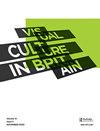Introduction: Scotch on the Box: Television Drama in Scotland, 1952–1990
Q2 Arts and Humanities
引用次数: 0
Abstract
Despite its position as possibly the most ubiquitous of all post-Second World War popular cultural media forms, and the wealth of existing scholarship on multiple aspects of British TV drama, television occupies a surprisingly marginal position within the study of modern Scottish culture. Despite being a markedly younger (and, in terms of cumulative production volume, a markedly smaller) indigenous representational tradition, Scottish cinema has attracted several monograph and anthology publications since the appearance of the pioneering Scotch Reels: Scotland in Cinema and Television in 1982. Scottish television drama, however, still awaits the publication of any book solely dedicated to it as a subject. This special issue of Visual Culture in Britain therefore aims to highlight Scottish television drama’s considerable cultural and scholarly importance and encourage enhanced levels of academic research in this area. Tellingly enough, given television’s traditionally sidelined status within Scottish cultural studies, this special issue derives its inspiration from the AHRC-funded project, ‘The History of Forgotten Television Drama in the UK’, based at Royal Holloway, University of London. That project ran from September 2013 until June 2017 and placed a specific emphasis upon the critical and historical investigation of television drama from the British nations and regions. As a part of the project, a conference entitled ‘Television Drama: The Forgotten, the Lost and the Neglected’ took place at the University of London in April 2015 and included a panel devoted to Scottish television drama. All the papers from that panel are included in this special issue, along with other work undertaken as part of the ‘Forgotten TV Drama’ research project. John Cook’s essay plays a vital scene-setting function for this special issue. Cook casts light on the historical origins of television drama production in Scotland by exploring the careers of key figures such as James MacTaggart (1928–74) and Pharic Maclaren (1923–80). Through a comprehensive account of those men’s local and BBC network activities, Cook shows both how and why enhanced historical understanding of one televisual tradition also results in better comprehension of others. Specifically, Cook’s analysis pinpoints the dense, mutually informing connections between the history of television drama produced from and/or about Scotland and the evolving (and frequently contentious) debates about drama’s place within the BBC’s UK-wide public service remit between the mid 1960s and early 1990s. Cook’s detailed historical account also possesses ample contemporary relevance. His work reminds readers that the idea of devolved and distinctive television production简介:《盒子里的苏格兰》:1952年至1990年苏格兰电视剧
尽管电视可能是二战后所有流行文化媒体形式中最普遍的,而且在英国电视剧的多个方面都有丰富的现有学术研究,但在现代苏格兰文化研究中,电视却占据了令人惊讶的边缘地位。尽管苏格兰电影是一个明显年轻的(就累积制作量而言,也是一个明显较小的)土著代表传统,但自1982年开创性的《苏格兰卷轴:电影和电视中的苏格兰》问世以来,它吸引了几本专著和选集出版物。然而,苏格兰电视剧仍在等待任何专门将其作为主题的书的出版。因此,这期《英国视觉文化》特刊旨在突出苏格兰电视剧在文化和学术方面的重要意义,并鼓励提高这一领域的学术研究水平。很明显,鉴于电视在苏格兰文化研究中传统上被边缘化的地位,本期特刊的灵感来源于AHRC资助的项目“英国被遗忘电视剧的历史”,该项目位于伦敦大学皇家霍洛威分校。该项目从2013年9月持续到2017年6月,特别强调对英国国家和地区电视剧的批判性和历史性调查。作为该项目的一部分,2015年4月在伦敦大学举行了题为“电视剧:被遗忘者、迷失者和被忽视者”的会议,其中包括一个专门讨论苏格兰电视剧的小组。该小组的所有论文以及作为“被遗忘的电视剧”研究项目的一部分进行的其他工作都包含在本特刊中。约翰·库克的文章为本期特刊起到了至关重要的场景设置作用。库克通过探索詹姆斯·麦克塔格特(1928–74)和法里克·麦克拉伦(1923–80)等关键人物的职业生涯,揭示了苏格兰电视剧制作的历史渊源。通过对这些人在当地和英国广播公司网络活动的全面描述,库克展示了如何以及为什么对一种电视传统的历史理解的增强也会导致对其他传统的更好理解。具体而言,库克的分析指出,在20世纪60年代中期至90年代初,苏格兰制作和/或关于苏格兰的电视剧的历史与关于戏剧在英国广播公司全英国公共服务范围内的地位的不断演变(且经常引发争议)的辩论之间存在着紧密、相互影响的联系。库克详细的历史叙述也具有充分的当代意义。他的作品提醒读者,权力下放和与众不同的电视制作理念
本文章由计算机程序翻译,如有差异,请以英文原文为准。
求助全文
约1分钟内获得全文
求助全文
来源期刊

Visual Culture in Britain
Arts and Humanities-Visual Arts and Performing Arts
CiteScore
0.60
自引率
0.00%
发文量
1
 求助内容:
求助内容: 应助结果提醒方式:
应助结果提醒方式:


